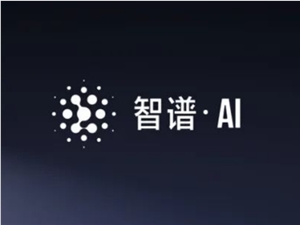OpenAI recently officially launched GPT-5-Codex, a version optimized based on GPT-5, specifically tailored for agentic coding. This model marks a significant leap of AI from an auxiliary tool to an autonomous "coding partner," greatly enhancing software development efficiency. According to the latest information, this release on September 15, 2025, quickly sparked discussions in the global tech community. Developer feedback shows it performs exceptionally well in handling complex tasks and has become the main traffic driver on the Codex platform.
Core Upgrades of the Model: Dynamic Thinking and Autonomous Execution
The core innovation of GPT-5-Codex lies in its dynamic "thinking" mechanism, which can flexibly adjust processing time based on task complexity. For simple queries or small tasks, it can respond quickly, taking just a few seconds; while handling large-scale refactoring or complex coding, it can autonomously iterate for more than 7 hours until implementation and testing failures are resolved. This model combines interactive development collaboration with persistent independent execution capabilities, with training focused on real software engineering scenarios such as code reviews, environment setup, and front-end understanding.

In benchmark tests, GPT-5-Codex surpassed standard GPT-5 on SWE-bench Verified (an assessment of agentic coding capabilities), scoring 74.5% on large repository code refactoring tasks. Additionally, it shows significant improvements in code reviews, submitting fewer error annotations and adding more high-impact feedback, helping developers catch critical bugs and even resolve hundreds of issues before human review. Testing shows that for simple tasks, token consumption is reduced by 94%, achieving more efficient resource utilization.
Multi-Platform Integration: Seamless Integration into Developer Ecosystems
This model is fully integrated into the Codex ecosystem, supporting multiple use cases: Codex CLI (command-line tool), IDE extensions, web interface, mobile applications, and GitHub code review features. Developers can access it through ChatGPT Plus, Pro, or Business plans. Plus/Edu/Business users can have several focused coding sessions per week, while Pro users can handle multiple projects throughout the workweek. The Codex CLI is now updated to version 0.35.0, supporting session recovery (codex resume) and offering low, medium, and high reasoning effort level options.

OpenAI emphasized that GPT-5-Codex is not intended to replace human review but serves as an additional review tool to enhance overall code quality. Security measures include sandbox execution, permission modes, and audit logs to ensure trustworthy deployment. API access will be available soon, further expanding its application in products like Cursor, VSCode, and GitHub Copilot.
Developer Feedback and Market Impact
Recent feedback shows that GPT-5-Codex performs exceptionally well in practical use, with many developers reporting a 60% reduction in development cycles, significantly faster code generation, and a better understanding of business logic context, avoiding over-engineering issues. It is hailed as a shift from auto-completion to agent-based completion, capable of building complete applications from scratch and maintaining minimal changes during refactoring. The launch of this model also strengthens OpenAI's competitiveness in the AI coding agent market, competing fiercely with products like Anthropic's Claude Code.


Future Outlook: A New Era of AI Coding
With the release of GPT-5-Codex, OpenAI is accelerating its progress toward AGI (Artificial General Intelligence), particularly in applications in the physical world and robotics. The optimization of this model not only improves coding efficiency but also provides reliable AI "teammates" for companies such as Cisco, Duolingo, and Ramp.
Official introduction: https://openai.com/index/introducing-upgrades-to-codex/










